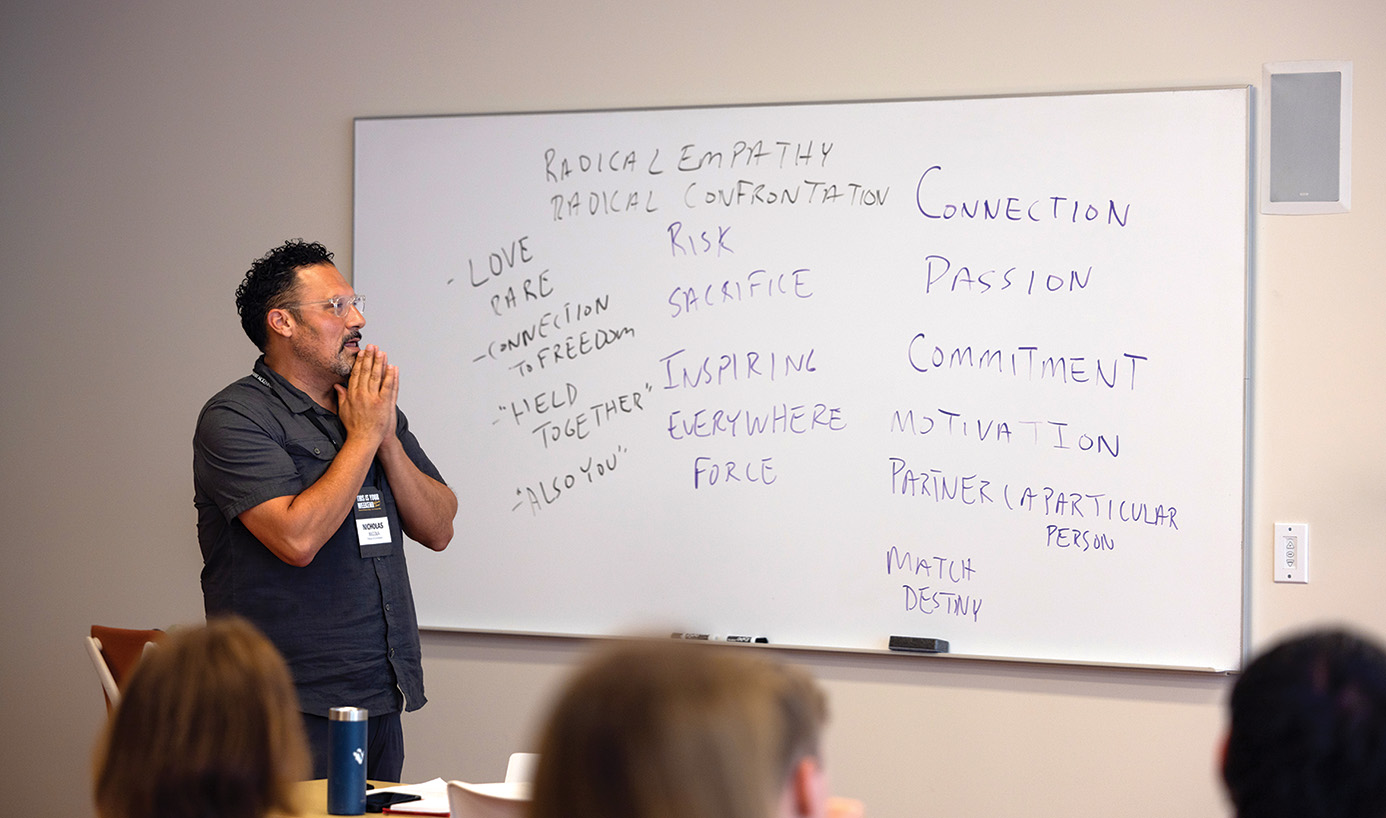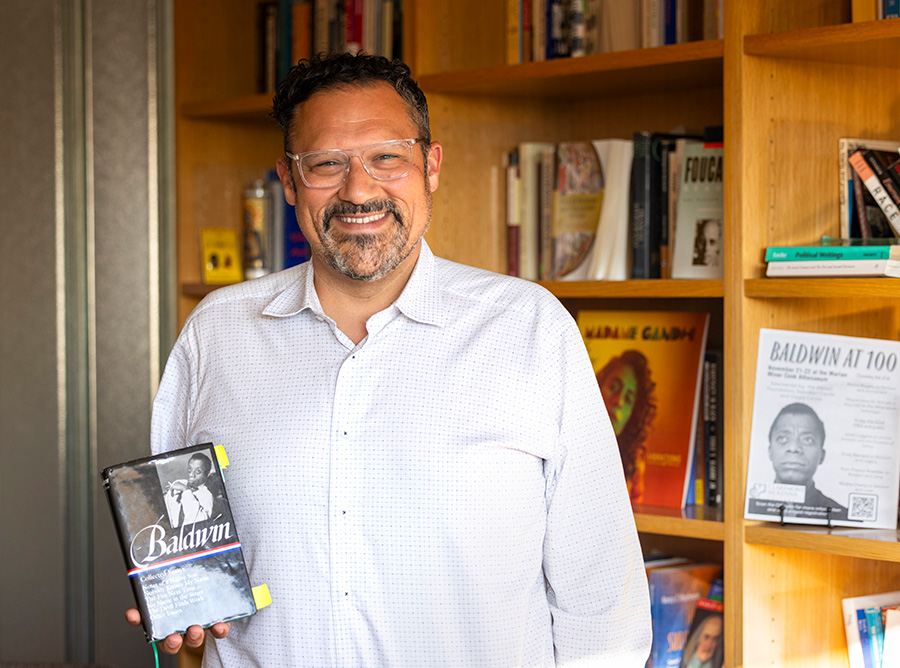To tell the story about the renowned debate between William F. Buckley and James Baldwin, Professor Nicholas Buccola took a “parallel lives approach.”
In 1965, William F. Buckley and James Baldwin faced off in a legendary debate about America’s racial divide. That debate, televised and now available on YouTube, still resonates 60 years later.
CMC Professor of Government Nicholas Buccola described the evening as “an intellectual clash for the ages,” with Buckley, a conservative intellectual, and Baldwin, the literary voice of the civil rights movement, arguing their diametrically opposed viewpoints.
Yet, both men, writes Buccola in his book, The Fire is Upon Us: James Baldwin, William F. Buckley Jr., and the Debate over Race in America, were “almost exact contemporaries,” who came of age intellectually in the same era.
In the book, Buccola explores each man’s ideas, “what they believed, why they believed it, and what we might be able to learn from their clash over civil rights.”
“They are embodiments of their movements (civil rights and conservatism) in some ways,” Buccola describing his early days writing the book. “There’s so much happening around them that they’re responding to—and shaping, in some instances. It became pretty clear to me, as I got into the archive, that this was a story. They were born 15 months apart, so it naturally lent itself to a parallel lives approach.”
When The Fire is Upon Us published in 2019, the book was hailed by The New York Times Book Review and ESPN’s “The Undefeated,” as well as featured on “The View” as one of Whoopi Goldberg’s “favorite things.”

A scholar of political philosophy, Buccola is accustomed to crossing over from academia into the public sphere, publishing essays in The New York Times, Salon, and Dissent, as well as in a wide range of academic journals, including The Review of Politics and American Political Thought. He is the author of The Political Thought of Frederick Douglass: In Pursuit of American Liberty, and the editor of The Essential Douglass: Writings and Speeches and Abraham Lincoln and Liberal Democracy.
In his next book, One Man’s Freedom: Goldwater, King, and the Struggle over an American Ideal, to be published in October 2025, Buccola considers the ideas and actions of Martin Luther King Jr. and Barry Goldwater, who—like Baldwin and Buckley—were leaders who held disparate views.
Buccola’s interest in Baldwin began when he was invited by Pomona College Politics Professor Sue McWilliams Barndt to contribute an essay to The Political Companion of James Baldwin. Buccola took a deep dive, “reading every word Baldwin wrote,” he said. “Once I started to get into Baldwin, I was completely transfixed.”
His essay, “What William F. Buckley Jr. Did Not Understand About James Baldwin: On Baldwin’s Politics of Freedom” centered on the tension between Baldwin and Buckley “in order to trace Baldwin’s views on freedom and the limits of politics.” As he wrote the essay, Buccola said, “I just kept saying to myself, ‘Wow, I can’t believe nobody has written a book about this debate!’ And now, Baldwin is central to a lot of different projects that I’m working on. I just don’t tire of reading him.”
Raised in what he calls a staunchly Republican household, Buccola described how in his early 20s, he considered himself to be on the ideological Right, and thus familiar with Buckley, who held a heroic presence among those in the conservative movement. In doing his research for the essay, however, the more Buccola studied Baldwin, he “became mildly obsessed about the possibilities of thinking about the two of them together.”
Baldwin’s “intellectual hunger,” Buccola said, “is very much in keeping with what I take to be the spirit of what we’re doing here at CMC.” Buccola joined the CMC faculty in 2023, and has since infused his appreciation for Baldwin into campus life.
In fall of 2024, Buccola organized a symposium marking Baldwin’s 100th birthday, which drew scholars, students, faculty, and staff to consider the impact of the influential writer’s life on academia, culture, and society. Buccola also taught a First-Year Humanities Seminar at CMC focused on Baldwin, and was inspired by Baldwin’s life and words as he composed his CMC Convocation keynote address, “Impossibilities and the Demands of Love.”
He is at work now on another book about Baldwin. “This one is about love,” he said.
“There’s something about Baldwin, just as a human being, who embodies a kind of curiosity. There’s a way that he’s always examining his life and the lives of those around him. He really wanted to engage with people, who had different life experiences and world views. He held a sincere desire to understand, to try to get a sense of what the world looks like through the eyes of other people. Central to what we do at CMC is thinking about ethics, thinking about leadership, and dialogue across difference. Those ideas are essential to Baldwin.”
–Anne Bergman
